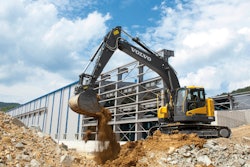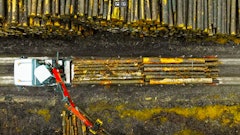The Energy Department announces $4 million to support three new cost-shared research projects focused on medium- and heavy-duty, on-road natural gas engines and $3 million to support two new cost-shared research projects for advancing fluid power systems for off-road vehicles. These five projects are complemented by $5 million in early-stage research at DOE’s National Laboratories.
With abundant domestic supplies, the United States could increase energy security from using low-cost natural gas as an alternative to other energy sources for transporting goods. Cost-effectively achieving diesel-like efficiency in natural gas engines, while meeting current and future emissions standards, will improve the affordability of natural gas-fueled medium- and heavy-duty vehicles. Recipients of the three new cost-shared projects are:
- Colorado State University (Fort Collins, CO) will receive $1.2 million to research ultra-low emissions, high-efficiency heavy-duty natural gas engines with optimized combustion chamber designs.
- University of Houston (Houston, TX) will receive $2 million to develop a new class of catalysts with low levels of precious metals for natural gas engine emissions control.
- University of Minnesota (Minneapolis, MN) will receive $1.1 million to advance low temperature combustion technologies for higher-efficiency natural gas engines.
In addition, DOE is supporting $3 million in early-stage research among several National Laboratories. Pacific Northwest National Laboratory (PNNL) and Oak Ridge National Laboratory (ORNL) are researching active and durable catalysts for low temperature methane oxidation to enable efficient CNG engines. Argonne National Laboratory (ANL), National Renewable Energy Laboratory, ORNL, and Sandia National Laboratories are working collaboratively to research fundamental in-cylinder and emissions-control advancements for higher-efficiency medium- and heavy-duty natural gas engines.
Fluid power systems in off-road vehicles play an important role in farming and construction vehicles such as backhoes, excavators, and plows. To improve the energy efficiency of these vehicles that use hydraulic actuators for tasks like moving, lifting, and plowing, DOE selected two new cost-shared projects:
- Purdue University (West Lafayette, IN) will receive $1.5 million to research a new architecture for fluid power systems in off-road vehicles that significantly reduces power losses and lower energy consumption by 70%.
- University of Minnesota (Minneapolis, MN) will receive $1.4 million to research a variable displacement motor for the off-highway market that reduces fuel consumption by 30% while increasing power density.
The department is also supporting $2 million in early-stage research on mobile fluid-power systems. ANL, ORNL, and PNNL are developing high performance fluid additives and coatings to improve efficiency, durability, and environmental compatibility of off-road hydraulic fluids and components.
The department’s Vehicle Technologies Office in the Office of Energy Efficiency and Renewable Energy invests in early-stage research to spur private-sector research, development and commercialization of more energy efficient and affordable transportation technologies that increase energy security and economic growth.



















